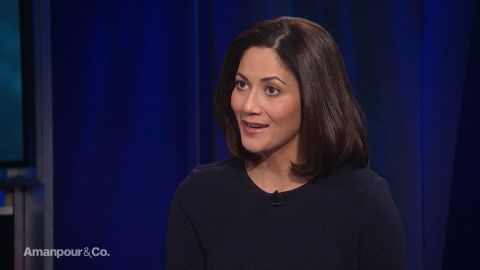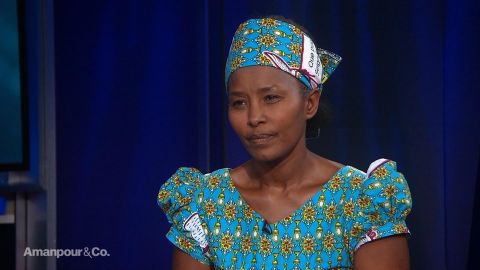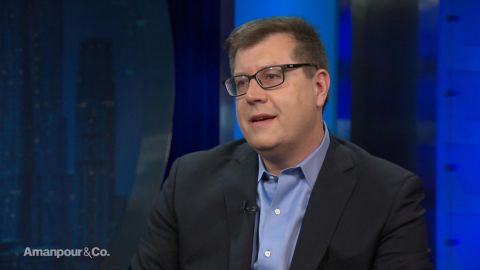Read Transcript EXPAND
CHRISTIANE AMANPOUR: So, here’s your book, “The Skills; From First Job to Dream Job”. So, it’s about — you say what every woman needs to know. What do you know? What did you learn? Why are you writing this?
MISHAL HUSAIN, AUTHOR, “THE SKILLS; FROM FIRST JOB TO DREAM JOB”: Well, the book — the initial thought for the book was born partly out of a sense of frustrations, like why are we having these debates about women in the work place. That frankly, when I left the university, I would have been amazed that we’re having today because I thought all of those battles have been won essentially by my mother’s generation. So, that was the initial starting point. But I started to think about what I could contribute. And the way I thought about it, about women in the workplace, it’s really that there are three dimensions, there’s a structural dimensioning that I don’t think we still have good enough solutions on part-time working or flexible working, which affects so many women and — which — for which, too often may pay a promotion penalty or a pay penalty.
There are questions about perception, socialization, the different ways in which we can perceive comparable women and men, particularly at senior professional levels. And then there’s what I think the personal dimension. And I guess this is where I really wanted to share what we learn on the job as broadcasters. And I’ve written about using your voice, about public speaking, about public scrutiny because our mistakes and successes are on display. Picking yourself up when things go wrong. All those kinds of things that are part of our working life but I think have broader relevance.
AMANPOUR: So, you’ve laid a table which we’re going to dig into one by one. But I want to first start with — where you first started. So, you’re essentially a second generation, as they would say in America, British-Pakistani or —
HUSAIN: Yes.
AMANPOUR: — Pakistani-Brit. You were raised, to an extent, when your parents were working in Saudi Arabia. So, you’re a young girl in Saudi Arabia. Do you remember anything about that time?
HUSAIN: Yes. So, I grew up in the Middle East. First in the UAE, which was a very easy expatic existence. But when my parents moved to Saudi Arabia, I was 11, and it was a turning point because they started to think very concretely about where my secondary education should be and they were certainly concerned that if I stayed in Saudi Arabia I’d have to wear the abaya and cover my head going to school, and they were very concerned that could limit my sense of what I might be able to —
AMANPOUR: So, let me read them from your father, how you quote your father about this very, very issue. You basically say, when you’re in Saudi Arabia, years later you found out, “My father told me that the motivation wasn’t only a desire for me to have a British education by sending you here to Britain, but also a worry about remaining in Saudi Arabia where I would have to wear an abaya or black cloak in public, might fundamentally alter my belief about what I could achieve in life.” Honestly, I mean, that is so profound for a father to think about his young daughter. It was about how you, not about the way other people would look at you but about how you looked at yourself.
HUSAIN: Yes. Correct. Would those physical constraints or requirements affect how I saw myself in later life?
About This Episode EXPAND
Christiane Amanpour speaks with Denise Uwimana about living through the Rwandan genocide and Mishal Husain about women climbing the career ladder. Alicia Menendez speaks with Dr. Homer Venters about the health risks for inmates and staff at Rikers Island.
LEARN MORE


